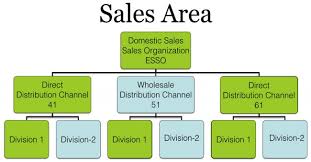Job Description:
Participating in the planning, development, and execution of large-scale solar power projects is your responsibility as a junior electrical engineer.
Key Responsibilities
- Assessing sites to ascertain whether solar power projects are feasible
- To guarantee the best possible PV system design and operation
- electrical computations and simulations are performed.
- Working together with project managers and other engineers
- guarantee that projects are finished on schedule and within budget
- Examining and analyzing technical specifications and drawings
- supplying technical assistance for PV system installation and commissioning
- Performing regular up
- keep and troubleshooting on PV systems that are already in place
- keeping abreast of the most recent developments in the solar and renewable energy industries.
Requirements:
- Electrical or mechatronic engineering bachelor’s degree
- Candidate registered with ECSA 3-6
Are you interested:?
Are you looking for other Vacancies..here is your solution
Junior Electrical Engineer
Becoming a junior electrical engineer is a thrilling choice. It’s a path filled with opportunities to design, create, and innovate.
As a junior electrical engineer, you’ll work with currents and circuits, bringing ideas to life.
Let’s explore what this role involves and how you can thrive in it.
What Does a Junior Electrical Engineer Do?
When we think about electrical engineers, we might picture them playing with wires or building machines,
but it’s much more than that.
Junior electrical engineers assist in designing, testing, and implementing electrical systems.
They deal with everything from small gadgets to large power grids.
Their day-to-day job may include:
Assisting with Design Projects: Working alongside senior engineers to create blueprints and technical drawings,
junior engineers learn the ropes while contributing to real projects.
Testing Equipment: Running tests and experiments helps ensure that equipment works properly.

It’s like solving a puzzle, figuring out what works and what doesn’t.
Documenting Findings: Keeping track of what works and what doesn’t is vital.
Writing reports helps share important information with the team.
Key Skills for Junior Electrical Engineers
No one jumps into a job without some skills in their toolbox. Here are a few key skills every junior electrical engineer should have:
Problem-Solving Skills: Every project brings unique challenges.
Finding solutions quickly can make the difference between a project’s success or delay.
Technical Knowledge: Understanding electrical theories and principles is crucial.
This includes knowing how different components work together.
Teamwork: Working well with others is a must.
Engineers often collaborate with designers, project managers, and technicians to achieve goals.
The Path to Becoming a Junior Electrical EngineerThe journey starts with education.
Most junior electrical engineers hold a degree in electrical engineering or a related field.
This degree lays the groundwork for future learning and skills.
Internships during school are also important because they provide hands-on experience.Once you start working, the learning doesn’t stop.
Junior engineers often take extra classes or certification courses to stay updated with new technology.
Continuous learning is like watering a plant; it helps you grow throughout your career.
Career Growth OpportunitiesMany people wonder,
“What’s next after being a junior electrical engineer?”
The good news is that there’s a lot of room for growth.
With experience, junior engineers can advance to more senior roles, like project managers or lead engineers.
They may also specialize in fields such as renewable energy or robotics.As you progress, your responsibilities may expand.
Senior engineers often oversee projects, manage teams, and make key decisions.
This path can lead to exciting new challenges, much like climbing a ladder — each rung brings you closer to your goals.
Industry Trends to WatchTechnology changes fast, and staying ahead is essential.
Here are a few trends shaping the future for electrical engineers:
Renewable Energy: As the world shifts to green energy, junior engineers play a role in designing solar panels and wind turbines.
Smart Technology: The rise of smart homes and devices means more demand for engineers who know how to integrate technology seamlessly.
Staying aware of these trends ensures that junior engineers remain valuable in an ever-evolving market.
Conclusion as a electrical engineer
Being a junior electrical engineer opens the door to a world full of possibilities. With the right skills, education,
and a thirst for knowledge, anyone can succeed in this role. Embrace the challenges, keep learning, and watch your career soar!




